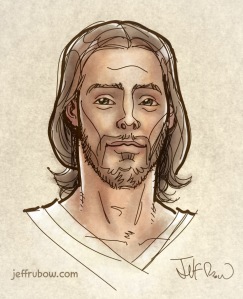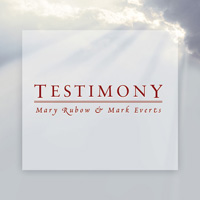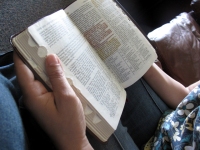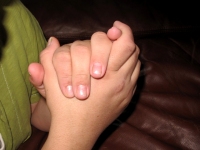The Lord revealed his law to the children of Israel. We know this as the law of Moses, because it was revealed to the prophet Moses. The previous chapter of Leviticus, covered some of Gods law regarding leprosy. The Bible Dictionary defines leprosy as, “A terrible form of skin disease spoken of in the Bible.” Under leper we can read, “The disease was regarded as a living death.” In chapter 13, it discussed the law of Moses with regard to the leper and his garments. The law of leprosy continues as follows:
1 And the Lord spake unto Moses, saying,
2 This shall be the law of the leper in the day of his cleansing: He shall be brought unto the priest:
3 And the priest shall go forth out of the camp; and the priest shall look, and, behold, if the plague of leprosy be healed in the leper;
4 Then shall the priest command to take for him that is to be cleansed two birds alive and clean, and cedar wood, and scarlet, and hyssop:
5 And the priest shall command that one of the birds be killed in an earthen vessel over running water:
6 As for the living bird, he shall take it, and the cedar wood, and the scarlet, and the hyssop, and shall dip them and the living bird in the blood of the bird that was killed over the running water:
7 And he shall sprinkle upon him that is to be cleansed from the leprosy seven times, and shall pronounce him clean, and shall let the living bird loose into the open field.
8 And he that is to be cleansed shall wash his clothes, and shave off all his hair, and wash himself in water, that he may be clean: and after that he shall come into the camp, and shall tarry abroad out of his tent seven days.
9 But it shall be on the seventh day, that he shall shave all his hair off his head and his beard and his eyebrows, even all his hair he shall shave off: and he shall wash his clothes, also he shall wash his flesh in water, and he shall be clean.
When a leper was cleansed, he went before the priest out of the camp and the priest would look to determine if the leprosy was healed. Then, two living birds, along with cedar wood, a scarlet cloth (according to the footnotes) and hysop, were taken and one was killed in an earthen vessel over running water. Then the remaining bird, the wood, scarlet and hysop, were dipped in the blood of the first bird. Then the leper was to be sprinkled seven times, pronounced clean and the bird let loose. Then, the cleansed leper was to wash his clothes, shave his hair, and wash in the water. At that point, he was to return to the camp and remain out of his own tent for seven days. On the seventh day, he was to shave all his hair again and wash his clothes and his body in water to be clean. I think at this point, the person was prepared to return to the tabernacle because he was clean.
10 And on the eighth day he shall take two he lambs without blemish, and one ewe lamb of the first year without blemish, and three tenth deals of fine flour for a meat offering, mingled with oil, and one log of oil.
11 And the priest that maketh him clean shall present the man that is to be made clean, and those things, before the Lord, at the door of the tabernacle of the congregation:
12 And the priest shall take one he lamb, and offer him for a trespass offering, and the log of oil, and wave them for a wave offering before the Lord:
13 And he shall slay the lamb in the place where he shall kill the sin offering and the burnt offering, in the holy place: for as the sin offering is the priest’s, so is the trespass offering: it is most holy:
14 And the priest shall take some of the blood of the trespass offering, and the priest shall put it upon the tip of the right ear of him that is to be cleansed, and upon the thumb of his right hand, and upon the great toe of his right foot:
15 And the priest shall take some of the log of oil, and pour it into the palm of his own left hand:
16 And the priest shall dip his right finger in the oil that is in his left hand, and shall sprinkle of the oil with his finger seven times before the Lord:
17 And of the rest of the oil that is in his hand shall the priest put upon the tip of the right ear of him that is to be cleansed, and upon the thumb of his right hand, and upon the great toe of his right foot, upon the blood of the trespass offering:
18 And the remnant of the oil that is in the priest’s hand he shall pour upon the head of him that is to be cleansed: and the priest shall make an atonement for him before the Lord.
On the eighth day, the cleansed man, was to take two lambs without blemish, a year old ewe without blemish, flour mixed with oil for the meat offering, and a log of oil, and return to the door of the tabernacle. Then the priest who cleansed him, was to present the man before the Lord, at the door of the tabernacle. The priest was to take one lamb for a trespass offering, and then make a wave offering with the lamb and log of oil. Blood of the offering was placed on the right ear, right thumb and right big toe, of the cleansed man. The priest was to place oil is his left palm, and then with his right hand, he was to use his right finger and sprinkle the oil seven times before the Lord. With the remaining oil in his hand, he was to touch the cleansed man’s right ear, right thumb and his right big toe where the blood had been placed, and then it was to be poured on his head.
19 And the priest shall offer the sin offering, and make an atonement for him that is to be cleansed from his uncleanness; and afterward he shall kill the burnt offering:
20 And the priest shall offer the burnt offering and the meat offering upon the altar: and the priest shall make an atonement for him, and he shall be clean.
The priest was to offer an atonement offering, after the sin offering, and then he would sacrifice the burnt offering. The meat offering would be made as well. Then after the offerings were made and the atonement made for this man, he would be considered clean.
21 And if he be poor, and cannot get so much; then he shall take one lamb for a trespass offering to be waved, to make an atonement for him, and one tenth deal of fine flour mingled with oil for a meat offering, and a log of oil;
22 And two turtledoves, or two young pigeons, such as he is able to get; and the one shall be a sin offering, and the other a burnt offering.
23 And he shall bring them on the eighth day for his cleansing unto the priest, unto the door of the tabernacle of the congregation, before the Lord.
24 And the priest shall take the lamb of the trespass offering, and the log of oil, and the priest shall wave them for a wave offering before the Lord:
25 And he shall kill the lamb of the trespass offering, and the priest shall take some of the blood of the trespass offering, and put it upon the tip of the right ear of him that is to be cleansed, and upon the thumb of his right hand, and upon the great toe of his right foot:
26 And the priest shall pour of the oil into the palm of his own left hand:
27 And the priest shall sprinkle with his right finger some of the oil that is in his left hand seven times before the Lord:
28 And the priest shall put of the oil that is in his hand upon the tip of the right ear of him that is to be cleansed, and upon the thumb of his right hand, and upon the great toe of his right foot, upon the place of the blood of the trespass offering:
29 And the rest of the oil that is in the priest’s hand he shall put upon the head of him that is to be cleansed, to make an atonement for him before the Lord.
30 And he shall offer the one of the turtledoves, or of the young pigeons, such as he can get;
31 Even such as he is able to get, the one for a sin offering, and the other for a burnt offering, with the meat offering: and the priest shall make an atonement for him that is to be cleansed before the Lord.
32 This is the law of him in whom is the plague of leprosy, whose hand is not able to get that which pertaineth to his cleansing.
If the man was poor, he could use a lamb and oil for the trespass and meat offerings, and two turtledoves or young pigeons for the sin and burnt offerings. Likewise, he was to bring them on the eighth day to the tabernacle door. The priest would still make the trespass offering of the lamb and oil as before and use the blood and oil on the cleansed man as mentioned before. Then, the priest would offer one of the birds for the sin offering and the other for the burnt offering, and make an atonement for the man.
33 And the Lord spake unto Moses and unto Aaron, saying,
34 When ye be come into the land of Canaan, which I give to you for a possession, and I put the plague of leprosy in a house of the land of your possession;
35 And he that owneth the house shall come and tell the priest, saying, It seemeth to me there is as it were a plague in the house:
36 Then the priest shall command that they empty the house, before the priest go into it to see the plague, that all that is in the house be not made unclean: and afterward the priest shall go in to see the house:
37 And he shall look on the plague, and, behold, if the plague be in the walls of the house with hollow strakes, greenish or reddish, which in sight are lower than the wall;
38 Then the priest shall go out of the house to the door of the house, and shut up the house seven days:
39 And the priest shall come again the seventh day, and shall look: and, behold, if the plague be spread in the walls of the house;
40 Then the priest shall command that they take away the stones in which the plague is, and they shall cast them into an unclean place without the city:
41 And he shall cause the house to be scraped within round about, and they shall pour out the dust that they scrape off without the city into an unclean place:
42 And they shall take other stones, and put them in the place of those stones; and he shall take other mortar, and shall plaster the house.
43 And if the plague come again, and break out in the house, after that he hath taken away the stones, and after he hath scraped the house, and after it is plastered;
44 Then the priest shall come and look, and, behold, if the plague be spread in the house, it is a fretting leprosy in the house: it is unclean.
45 And he shall break down the house, the stones of it, and the timber thereof, and all the mortar of the house; and he shall carry them forth out of the city into an unclean place.
The Lord went further to tell Moses and Aaron how to deal with leprosy when they finally arrived in the land of Canaan. At that time, if there was leprosy in a house, the owner was to tell the priest. I find it interesting that it would say in verse 34, “and I put the plague of leprosy in a house of the land”. It sounds like this was the case when a person was cursed of the Lord, and I wonder if that will come up again later in the Bible. In any case, the priest was to see that the house was made empty before he would look to determine if the plaque was there, so that the people of the house would not be made unclean. The priest would look to see the house, and if it appeared to have leprosy, it was to be shut for seven days. The priest was to look again, and if it had spread, the stones were to be removed and cast out of the city, the remaining house was scraped and the dust that was scraped off, was to be removed from the city. Then new stones, mortar and plaster, was to be placed on the house. If the plaque came again, the priest was to look again and pronounce it unclean. Then the house was to be destroyed completely and all the parts taken out of the city.
46 Moreover he that goeth into the house all the while that it is shut up shall be unclean until the even.
47 And he that lieth in the house shall wash his clothes; and he that eateth in the house shall wash his clothes.
Anyone who was in the house with leprosy, was considered unclean until the evening. Those who slept or ate there, were to wash their clothes.
48 And if the priest shall come in, and look upon it, and, behold, the plague hath not spread in the house, after the house was plastered: then the priest shall pronounce the house clean, because the plague is healed.
49 And he shall take to cleanse the house two birds, and cedar wood, and scarlet, and hyssop:
50 And he shall kill the one of the birds in an earthen vessel over running water:
51 And he shall take the cedar wood, and the hyssop, and the scarlet, and the living bird, and dip them in the blood of the slain bird, and in the running water, and sprinkle the house seven times:
52 And he shall cleanse the house with the blood of the bird, and with the running water, and with the living bird, and with the cedar wood, and with the hyssop, and with the scarlet:
53 But he shall let go the living bird out of the city into the open fields, and make an atonement for the house: and it shall be clean.
54 This is the law for all manner of plague of leprosy, and scall,
55 And for the leprosy of a garment, and of a house,
56 And for a rising, and for a scab, and for a bright spot:
57 To teach when it is unclean, and when it is clean: this is the law of leprosy.
If the house looked the same or better when the priest came to see it the after the new plaster had been put on the walls, then it was pronounced clean. The priest would take two birds, cedar wood, scarlet and hyssop to cleanse the house. One bird was killed in an earthen vessel over running water. Then the living bird, wood, scarlet and hyssop were dipped in the blood and running water. The the house was sprinkled seven times. The blood of the bird and the water was used in the house, along with the wood, hyssop and scarlet, in order to cleanse it. The living bird was then let go out of the city and an atonement will have been made for the house. It would then be clean.
The notes here, are my own interpretation of what I have read. It is interesting to me, to read how leprosy would affect people, their clothing and their homes like this. I have heard of experiences where death has left decay and rot in a home, so that is the closest I can come to understanding. It sounds like leprosy was a type of decay of the body, so maybe the idea is pretty close. The Bible Dictionary says the following with regards to leprosy:
There were apparently several types of leprosy, and the word is used in the Bible to designate other sicknesses or diseases. For example, clothing and walls were said to be leprous when they had patches of mildew or some fungous growth, as in Lev. 13:47–59; 14:33–37.
I don’t think I can adequately imagine what it was like, without witnessing the effects of leprosy for myself, and I am glad that I don’t have to at this point.
I think that while this was a very physical law for the people of Israel, which as I mentioned in my previous post, would have been a way to protect the people from destruction within, it is also in the scriptures to remind us of the way sin effects us and should be treated. Sin, like leprosy, is an infectious and cancerous condition of the spirit. It causes spiritual decay when left to spread. If a sin is great enough, it must be taken to the priest, meaning we must confess to our priesthood leadership, like a bishop. The bishop has the authority from God, to determine if the sin has reached the point of making us an unworthy individual to participate in the ordinances of the gospel. If we need to make a change, he will let us know. If we talk with him again, he will determine then if it causes us to be unworthy, or if we can again return to our normal standing within the gospel. We are not made to declare to the world that we are unclean, but the feeling of not being allowed to participate in sacred ordinances, or not being allowed to say prayers or participate during classes in church, is just as lonely a feeling as the lepers had, which were sent out of the city. It can feel like everyone knows and often times like many judge. Worst of all, you can feel the separation from the spirit that one has when they are worthy of it. When the efforts of repentance have been made, and the sin no longer thrives within us, we are asked to come to the Lord and partake of the holy ordinance of the sacrament. This is the ordinance of sacrifice that we participate in today. When we can worthily partake of the sacrament, we can be considered clean from that sin.
(NOTE: The manual I am reading along with this says that the birds represented first, the leper or natural man and the second, the man freed from bondage of sin.)

I may not be perfect in my interpretation, but when I think of the sacrifice ritual performed for cleansing, it makes me think of the Savior. If the stories of Christ healing the lepers in his minstry, is not enough to cause us to think of Him, there is more here. Two birds are like two individuals brought before the judge or priest, much like we will be brought before God, who is the final judge of us all. One, in an earthen vessel, or in his earthly body, is sacrificed along with wood, a scarlet cloth, and hysop. I’m not sure how the cedar wood was used then, but it reminds me of the wood of the cross, which the Savior was raised upon. A scarlet cloth is a clear reminder to me of the Savior; the symbol of being our king (used even by the soldiers who beat him), the imagery of removing our sins, and a reminder of the clothing he will wear when he returns again. Matthew 27:28 says, “And they stripped him, and put on him a scarlet robe.” Then Isaiah 1:18 quotes the Lord as saying, “though your sins be as scarlet, they shall be as white as snow…”. Finally, In Doctrine and Covenants, the words of Isaiah are repeated in section 133 as follows:
46 And it shall be said: Who is this that cometh down from God in heaven with dyed garments; yea, from the regions which are not known, clothed in his glorious apparel, traveling in the greatness of his strength?
47 And he shall say: I am he who spake in righteousness, mighty to save.
48 And the Lord shall be red in his apparel, and his garments like him that treadeth in the wine-vat.
Then, the hyssop is a plant which was used during the Savior’s crucifixion. In John 19:29 we read, “Now there was set a vessel full of vinegar: and they filled a sponge with vinegar, and put it upon hyssop, and put it to his mouth.” The blood, like His blood, is used with the water to cleanse the remaining individual. We are anointed by his blood and may be pronounced clean, or purified, through the blood of Christ, just as the bird was cleansed by the blood in the ritual. When we are made clean through Christ, we can be worthy to participate in all the ordinances of the priesthood. Therefore, we can be made worthy to receive all the blessings of the priesthood, promised to Abraham, Isaac, and Jacob.





